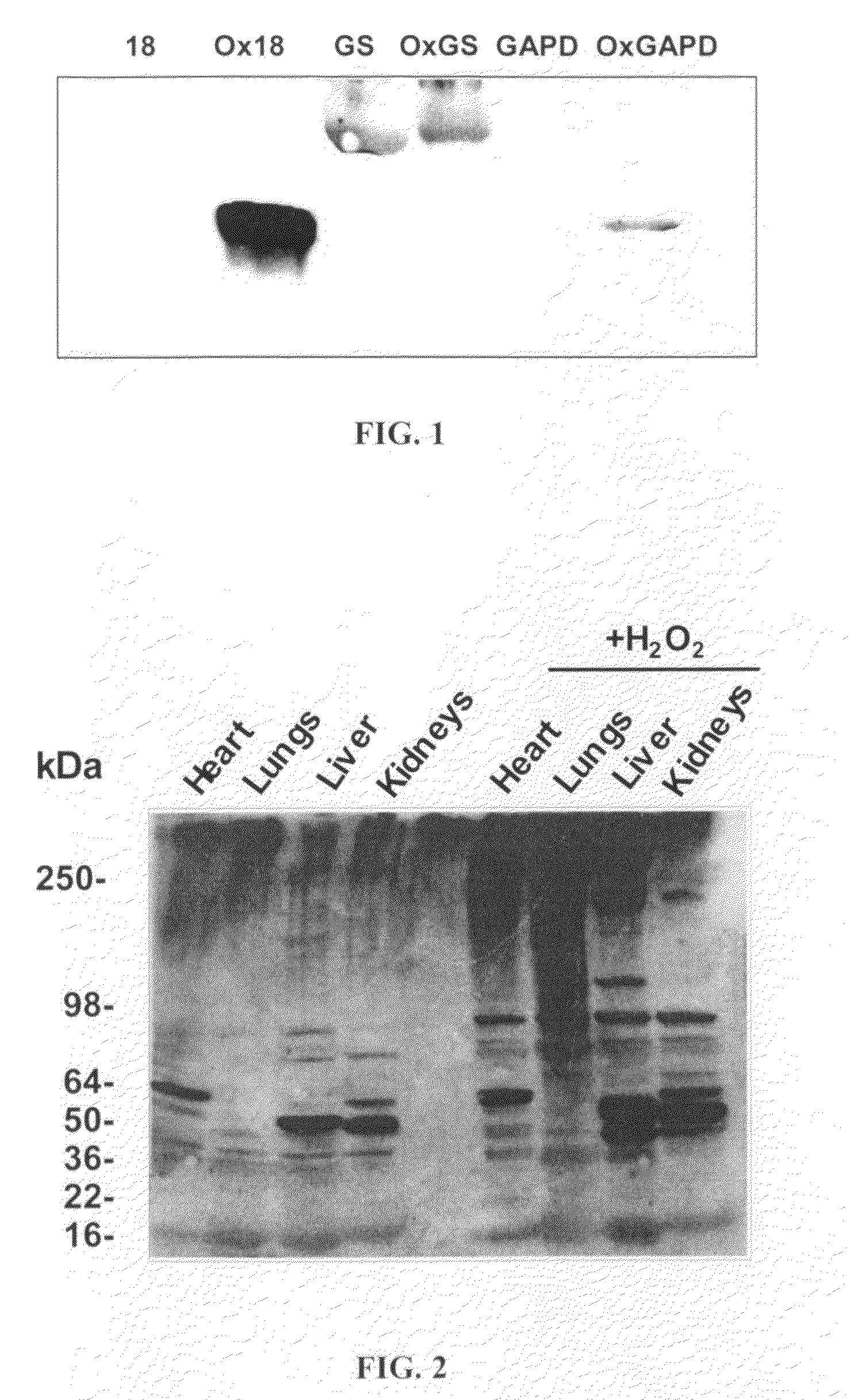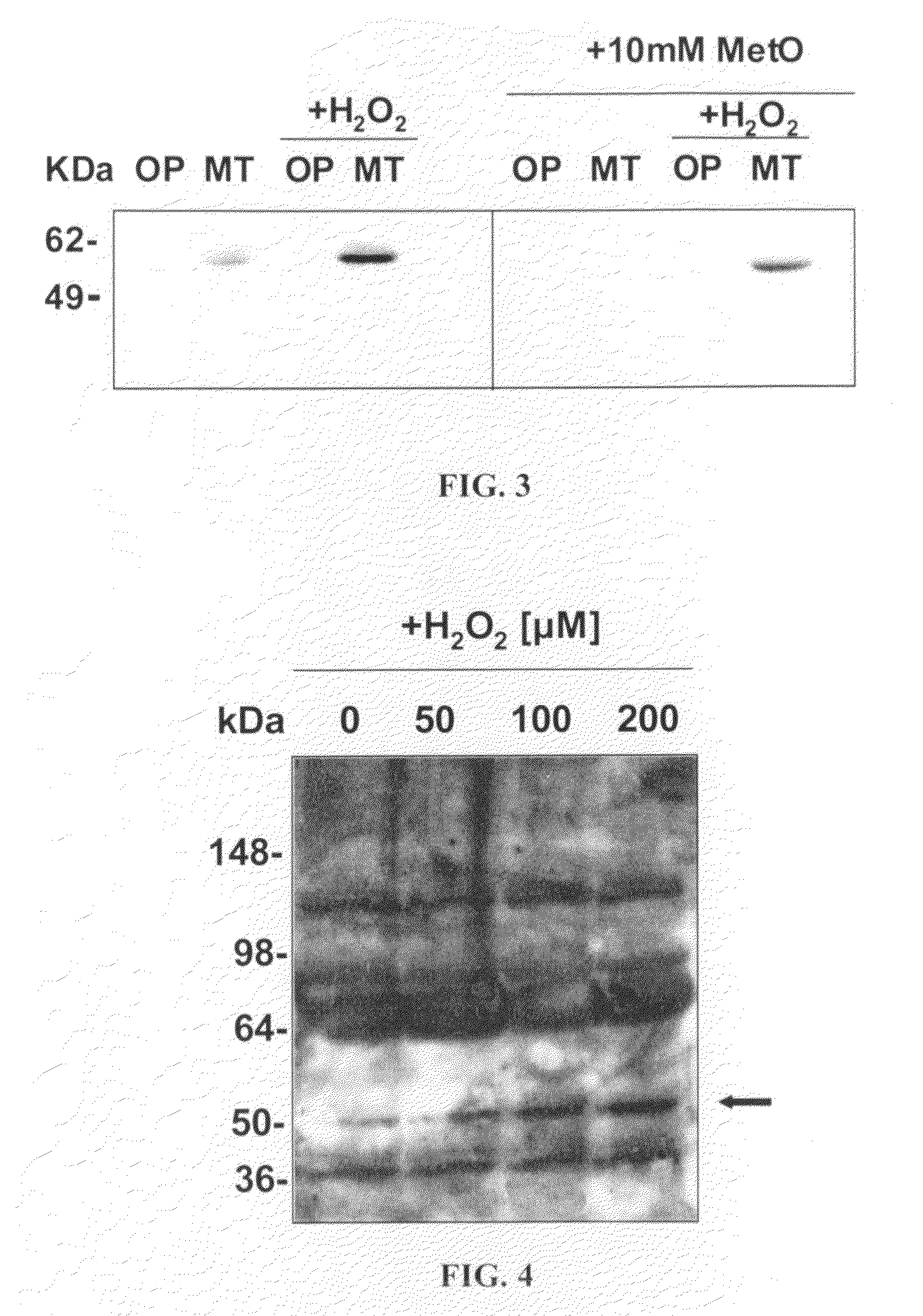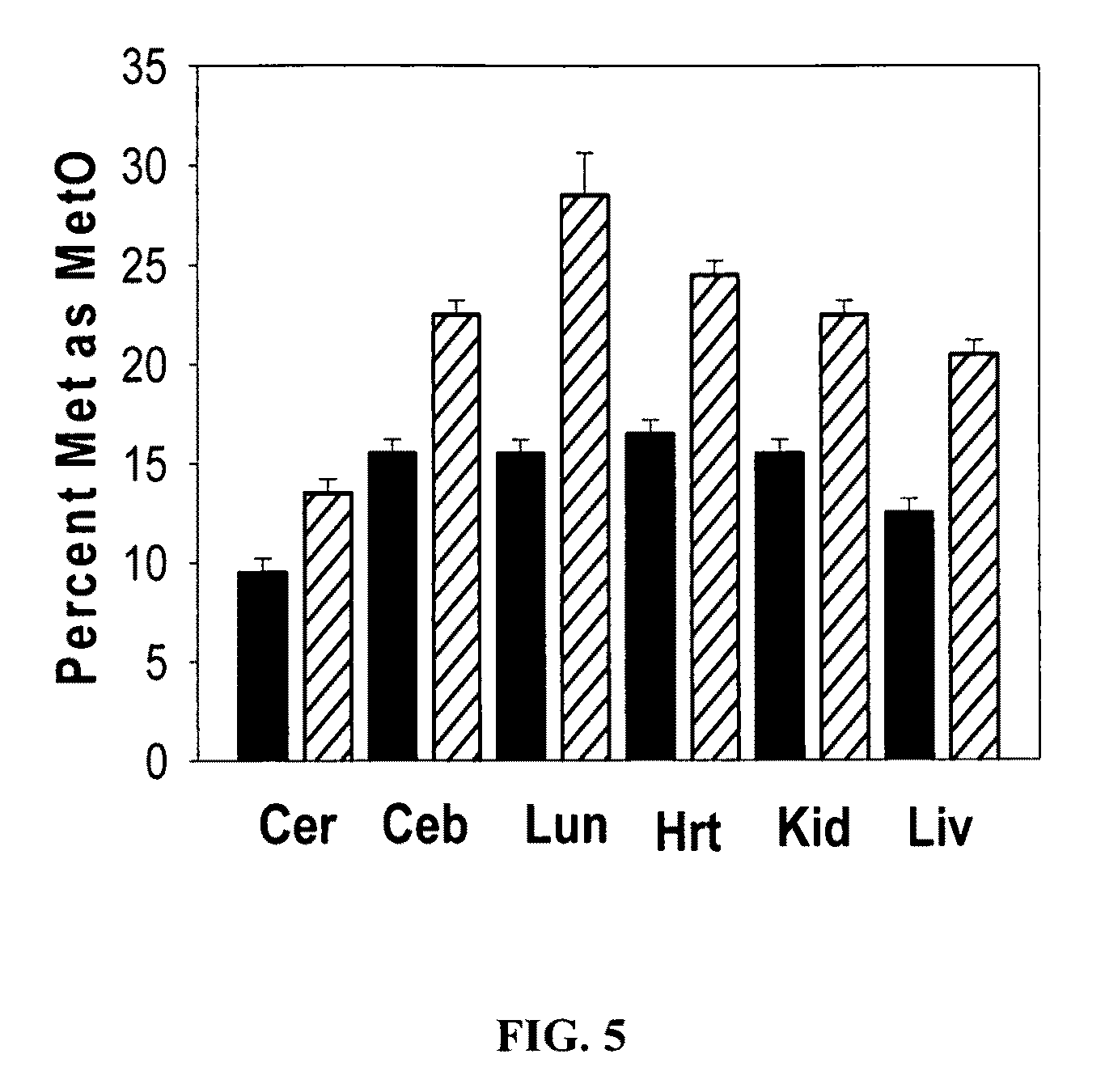Methionine Sulfoxide Antibodies
a technology of methionine sulfoxide and antibodies, which is applied in the field of methionine sulfoxide antibodies, can solve the problems of oxidative stress-related diseases, affecting and affecting the function of certain proteins, so as to achieve the identification of methionine-oxidized proteins in their fully damaged state or in the intermediate functional stage in vivo
- Summary
- Abstract
- Description
- Claims
- Application Information
AI Technical Summary
Benefits of technology
Problems solved by technology
Method used
Image
Examples
example 1
Generation of Plant-Methionine Rich Protein as Antigen
[0035]The endosperm of maize (Zea mays) seeds contains several classes of alcohol-soluble storage proteins called zeins, which together make up nearly 50% of the total seed protein content. Some Zeins proteins are rich in sulfur amino acids (Met and Cys). Thus, in the present invention, zeins were used in designing a high rich-MetO protein.
[0036]Zeins can be separated into four major classes (as determined by their sequence and apparent molecular mass following SDS / PAGE: α (19 and 22 kDa), β (15 kDa), γ (16 and 27 kDa) and δ (10 kDa) Zeins. In this example, a derivative of the gene encoding an 18 kDa Met-rich Zein that is closely related to the 10 kDa Zein protein was used (Swarup 1995). The Zeins proteins, 10 kDa (DZS10) and the 18 kDa (DZS18), share 80% percent similarity and 66% identity while the DZS18 contains 25% of methionine compared with 23% of DZS10 (Swarup 1995). The high percentage of methionine residues in DZS18 make...
example 2
Antibodies Produced Against Meto-DZs318 Show Specificity Towards Proteins Containing MetO
[0042]In this example, it was demonstrated that the antibodies from Example 1 showed specificity towards the MetO-DZS18 protein and did not react with the non-oxidized form of the protein (DZS18). In addition, the antibodies reacted with several non-homologus proteins in their oxidized forms: rabid glutamine synthetase (GS) (Sigma) and E. coli glyceraldehyde 3-phosphate dehydrogenase (GAPD) (provided by B. Berlett, NIH). This suggests specific reactivity of the antibodies towards methionine sulfoxide residues. All the methionines in the oxidized proteins were found to be oxidized, as judged by amino acid analysis.
[0043]As shown in FIG. 1, the MetO-DNZ18 (Ox18) migrates as a 36-kDa protein due to the mass contribution by the addition of 6-Histidine tag to its N-terminus and oxygen to all of its methionines. The native GS shows reaction with antibodies (FIG. 1) as it is naturally oxidized under it...
example 3
Specificity of Anti-MetO-DZS18 in Different Tissues
[0045]To further characterize the anti-MetO-DZS18 antibodies for detection of MetO-proteins in biological extracts, protein extracts from several mouse tissues were investigated. Each protein extraction was performed in PBS in the presence of proteases inhibitors cocktail (Roche) and 2% SDS. Half of each protein sample was treated with 100 mM hydrogen peroxide for 2 hours at 37° C. in the presence of 2% SDS (to inhibit peroxidases activities). Following 1D-protein-gel-electrophoresis (4-20%) of the proteins, the MetO-proteins were detected in a western blot analysis using the anti-MetO-DZS18 antibodies.
[0046]As expected, as shown in FIG. 2 following western blot analysis using the anti-MetO-DZS18 antibodies, the reaction of the antibodies with existing and new protein bands was increased in all tissues that were treated with hydrogen peroxide in comparison to the non-treated proteins. This result indicates that the anti-MetO-DZS18 a...
PUM
| Property | Measurement | Unit |
|---|---|---|
| Molecular mass | aaaaa | aaaaa |
| apparent molecular mass | aaaaa | aaaaa |
| apparent molecular mass | aaaaa | aaaaa |
Abstract
Description
Claims
Application Information
 Login to View More
Login to View More - R&D
- Intellectual Property
- Life Sciences
- Materials
- Tech Scout
- Unparalleled Data Quality
- Higher Quality Content
- 60% Fewer Hallucinations
Browse by: Latest US Patents, China's latest patents, Technical Efficacy Thesaurus, Application Domain, Technology Topic, Popular Technical Reports.
© 2025 PatSnap. All rights reserved.Legal|Privacy policy|Modern Slavery Act Transparency Statement|Sitemap|About US| Contact US: help@patsnap.com



